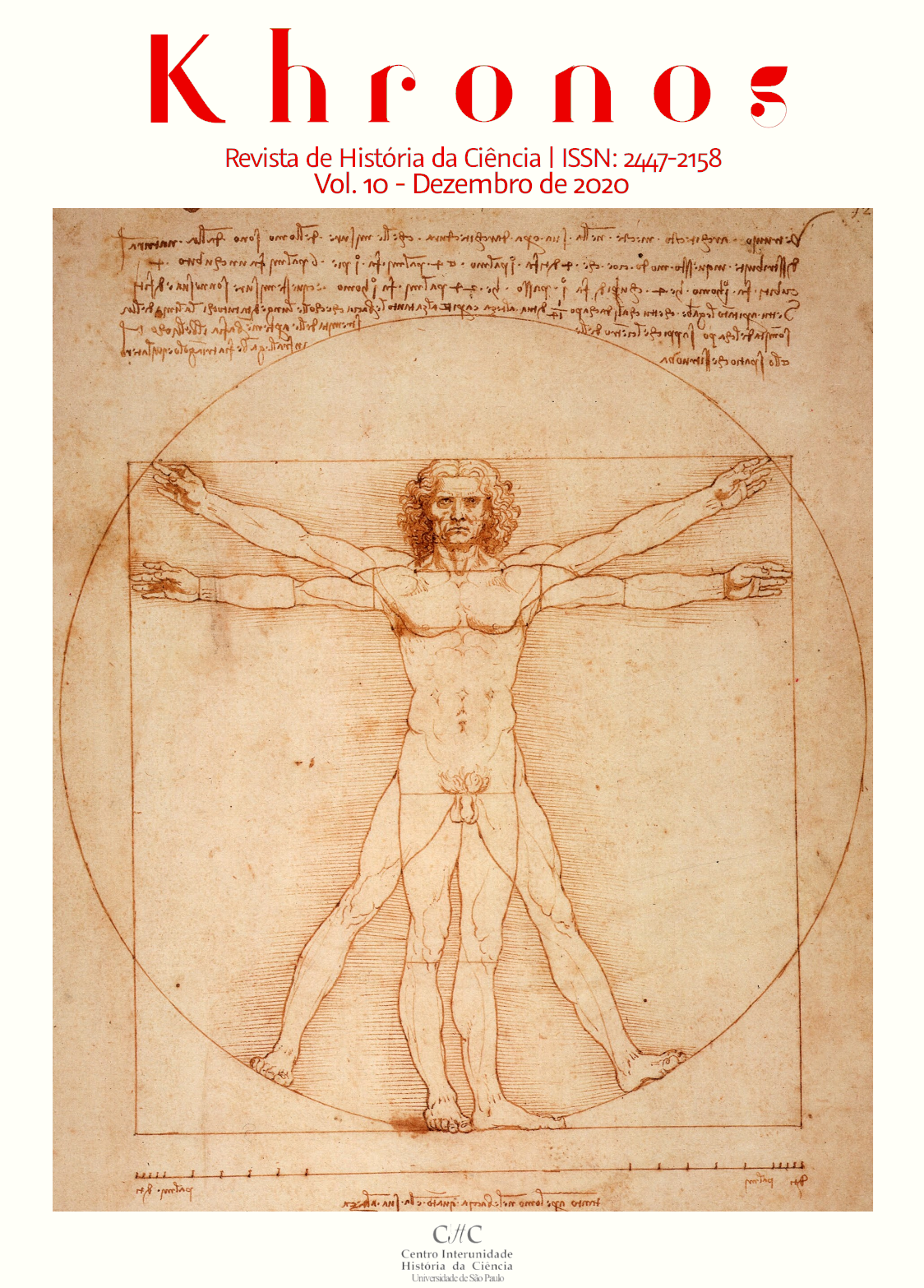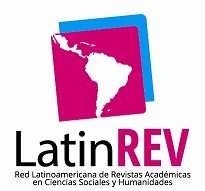Relationships between science, literature and the world of social life: the problem of technical progress from some initial notions of Jürgen Habermas
DOI:
https://doi.org/10.11606/issn.2447-2158.i10p204-215Keywords:
History of Science, Technical and Scientific Progress, Jürgen Habermas, Literature, ModernityAbstract
This text makes a brief critical reading of the article Technical progress and the social life-world (1965) by Jürgen Habermas, seeking to explain the author's ideas about the existing limits between the concepts “Science” and “Literature”, within the process of building his thesis on communicative rationality [kommunikative Vernunft], with the aim of reflecting some of his ideas in order to collaborate with the discussions of problems that are valued to the historiography of science and, more broadly, to the social studies of science and technology in contemporary times. The text also briefly examines the main references used by Habermas in his essay to deal with the partition of the so-called empirical-analytical sciences and the historical-hermeneutical sciences, mainly during the second half of the 20th Century.
Keywords: History of Science, Technical and Scientific Progress, Jürgen Habermas, Literature, Modernity.
Downloads
References
HABERMAS, Jürgen. Technischer Fortschritt und soziale Lebenswelt. Praxis, Zagreb, v. 2, n. 1/2, pp. 217-228, 1966; HABERMAS, Jürgen. Strukturwandel der Öffentlichkeit: Untersuchungen zu einer Kategorie der bürgerlichen Gesellschaft. Neuwied, Berlin: Luchterhand, 1962; HABERMAS, Jürgen. Theorie und Praxis. Sozialphilosophische Studien. Neuwied, Berlin: Luchterhand, 1963; HABERMAS, Jürgen. Theorie des kommunikativen Handelns. Frankfurt: M. Suhrkamp, 1981.
HABERMAS, Jürgen. Técnica e ciência como “ideologia”. São Paulo: Editora Unesp, 2014, p. 132-149.
HUXLEY, Aldous. Literature and science. Nova York: Harper & Row, 1963. Outros autores escreveram e se posicionaram no seio dessa controvérsia naquele período, como Charles Raven, John Harold Plumb, Lionel Trilling, Martin Green, Robert Oppenheimer etc.
LATOUR, Bruno. Cogitamus: seis cartas sobre as humanidades científicas. São Paulo: Editora 34, 2016.
LUBENOW, Jorge Adriano. Esfera pública e democracia deliberativa em Habermas: modelo teórico e discursos críticos. Kriterion, Belo Horizonte , v. 51, n. 121, p. 227-258, June 2010 . Available from <http://www.scielo.br/scielo.php?script=sci_arttext&pid=S0100-512X2010000100012&lng=en&nrm=iso>. access on 07 June 2020. https://doi.org/10.1590/S0100-512X2010000100012.
ORTOLANO, Guy. The two cultures controversy: science, literature, and cultural politics in post-war Britain. Cambridge: Cambridge University Press, 2009.
RIBEIRO, Renato Janine. O Brasil voltou cinquenta anos em três. In: GEISELBERGER, Heinrich (org.). A grande regressão: um debate internacional sobre os novos populismos – e como enfrentá-los. São Paulo: Estação Liberdade, 2019, pp. 316-317.
SNOW, Charles Percy. The two cultures. Cambridge: Cambridge University Press, 1998, pp. 16-17.
STEVENS, Robert. University to uni: the politics of higher education in England since 1944. Londres: Politico’s Publishing, 2004.
Downloads
Published
Issue
Section
License
Copyright (c) 2020 Raiany Oliveira

This work is licensed under a Creative Commons Attribution-NonCommercial 4.0 International License.
Authors who publish in this journal agree to the following terms:
- Authors retain the copyright and grant the journal the right to first publication, with the work simultaneously licensed under the Creative Commons Attribution License in the "Attribution-NonCommercial 4.0 International" (CC BY-NC 4.0) modality that allows sharing of the work with acknowledgment of authorship and initial publication in this magazine.
- Authors are authorized to assume additional contracts separately, for non-exclusive distribution of the version of the work published in this journal (eg, publishing in institutional repository or as a book chapter), with acknowledgment of authorship and initial publication in this journal.
- Authors are allowed and encouraged to publish and distribute their work online (eg in institutional repositories or on their personal page) at any point before or during the editorial process, as this can generate productive changes, as well as increase impact and citation of the published work (See The Effect of Open Access).
- Any doubts or complaints about copyright must be directed to the Editorial Board or qualify and express themselves in accordance with the guidelines of the Committee on Publications Ethics (COPE).





